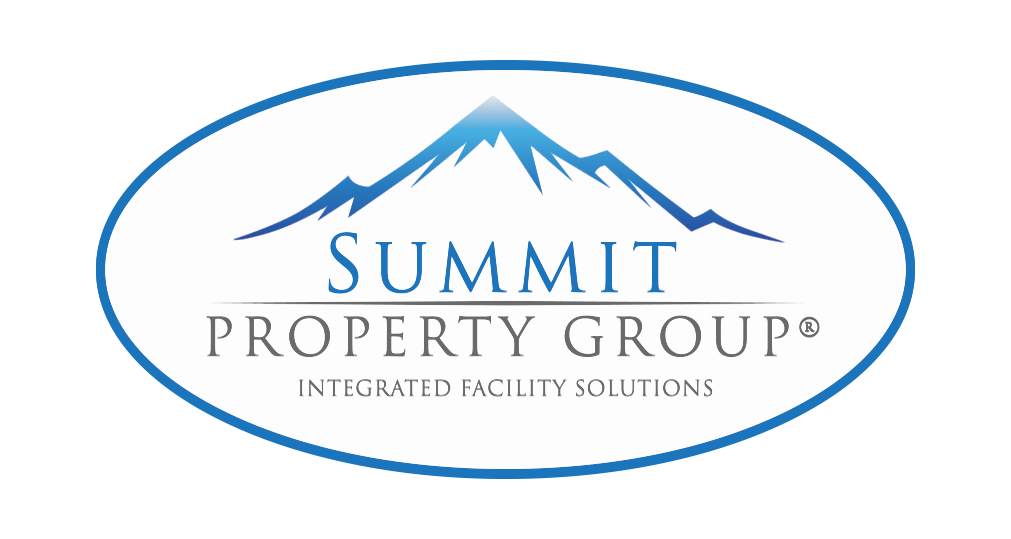The Importance of Insured Maintenance in Various Industries
In the hustle and bustle of daily life, it’s easy to overlook the silent hero working behind the scenes in various sectors – maintenance. From the gleaming skyscrapers of metropolitan landscapes to the sophisticated equipment that powers industry, maintenance is critical to ensure the efficient operation of many sectors. Aside from the obvious repairs and upkeep, maintenance promotes sustainability. By increasing the lifespan of structures and machinery, it reduces the need for frequent replacements, which contributes to resource conservation and environmental effect.
Insured maintenance is a subtle but critical component in the long-term viability and sustainability of our modern infrastructure and equipment. It recognizes that the actual meaning of sustainability is the capacity to extend the lifespan of assets, decreasing the need for frequent replacements and lowering the total environmental impact. By cautiously adhering to the maintenance needs of structures and machinery, these overlooked heroes play a critical role in waste reduction, resource conservation, and the promotion of a responsible consumer culture.
The Vital Role of Maintenance in Landscape Management
Maintenance is extremely important in landscape management. It is the foundation that ensures the aesthetic appeal, usefulness, and sustainability of outdoor areas in a variety of industries. Landscapes are meticulously cared for in commercial sites, public parks, residential neighborhoods, and industrial complexes to preserve their life and worth. In essence, maintenance is more than just upkeep; it is a dedication to increasing value, promoting sustainability, and enriching experiences across landscapes, assuring their long-term importance in varied contexts.
The Essential Role of Maintenance in Snow and Ice Management
As winter covers the terrain in its icy grasp, proper snow and ice management becomes critical. Snow and ice may provide substantial problems and risks in a variety of settings, including transportation and infrastructure, business enterprises, and residential locations. However, the key to effective snow and ice maintenance is not merely reactionary measures, but also proactive maintenance initiatives.
In winter, maintaining safe transportation routes, infrastructure, commercial properties, and residential areas is vital. Regular upkeep of snowplows and salt spreaders ensures efficient snow removal and minimizes traffic disruptions. Infrastructure inspection prevents damage from snow and ice, while anti-icing treatments prevent accumulation. Businesses prioritize clearing parking lots and sidewalks to prevent accidents. Homeowners maintain equipment and stock up on de-icing agents for safe access. Environmental considerations emphasize eco-friendly de-icing agents and sustainable snow disposal to mitigate ecological impact. Overall, proactive maintenance and strategic planning ensure safety and accessibility during winter months, benefiting both communities and the environment.
Crucial Role of Maintenance in Building Management
Proper maintenance is critical in the evolving environment of building management, whether for residential, commercial, or industrial facilities, to ensure durability, safety, and operational efficiency. Regular maintenance is essential for protecting property value across all sectors, including residential, commercial, and industrial buildings. By constantly maintaining buildings and facilities, owners and managers may assure durability, safety, and regulatory compliance while minimizing risks and optimizing efficiency.
The importance of regular property maintenance is crucial for several reasons. It helps to protect your investment by preserving aesthetics and structural integrity through operations such as painting, roofing repair, and landscaping. Routine inspections of critical systems safeguard occupants’ safety and comfort by proactively resolving possible faults. Compliance with rules is critical in commercial buildings to reduce legal risks and protect inhabitants. In industrial environments, timely maintenance lowers downtime by minimizing mechanical failures and preserving operational continuity. By employing insured maintenance methods, building managers maintain safety standards, extend the life of the facility, and reduce financial responsibilities connected with unexpected damage or accidents.
How Insured Maintenance Companies Elevate Janitorial Standards
In the ever-changing environment of facility management and cleaning services, the importance of keeping places clean and well-organized cannot be underestimated. Businesses, organizations, and residential complexes all appreciate the critical role that cleaning services play in maintaining a safe and sanitary environment. Janitorial services cover a wide range of responsibilities, from everyday cleaning to specialized upkeep.
In the competitive world of cleaning services, reputation is an asset that is extremely valuable. An insured maintenance firm indicates not just financial responsibility, but also a dedication to openness and ethical business behavior. Clients are more inclined to pick a janitorial service provider that goes above and beyond to safeguard its clients and staff by providing extensive insurance coverage, resulting in a favorable and trustworthy reputation in the industry.

The Role of Maintenance Companies
In the dynamic landscape of today’s business environment, maintenance is a critical aspect that often plays a behind-the-scenes role in ensuring seamless operations. Whether it’s routine upkeep or unexpected repairs, the impact of smart maintenance on business operations cannot be overstated. Maintenance plays a crucial role in business operations with various impacts. Downtime, whether scheduled or unscheduled, can hamper productivity, necessitating careful planning to minimize disruptions. Despite being seen as an expense, maintenance is an investment that prevents breakdowns, extends equipment lifespan, and ultimately saves money.
Optimal asset maintenance promotes dependability, efficiency, and quality, which improves customer satisfaction and loyalty. Compliance with regulatory requirements is critical since failure may result in legal penalties and harm to a company’s brand. Maintaining a safe and comfortable work environment by means of regular maintenance improves employee morale, safety, and productivity.

Unveiling the Difference: Insured vs. Uninsured Maintenance Competitors
In the realm of maintenance services, the choice between insured and uninsured competitors can significantly impact the outcome of a project. While both options may seem similar at first glance, delving deeper into their differences reveals important considerations that can influence your decision-making process.
Let’s uncover the disparities between insured and uninsured maintenance competitors:
Insured Maintenance Competitors:
Risk Mitigation
Insured maintenance competitors have insurance coverage, which reduces the risks related with any accidents, damages, or liabilities throughout the course of the project. This coverage protects both the customer and the service provider by guaranteeing that unforeseen events do not result in financial difficulties or legal conflicts.
Professionalism and Credibility
Choosing to invest in insurance demonstrates a dedication to professionalism and trustworthiness. Insured maintenance rivals frequently focus quality workmanship while adhering to industry rules and laws. Clients can feel certain that they are working with a respectable service provider who appreciates responsibility and dependability.
Peace of Mind
Clients can enjoy peace of mind knowing that they are protected against unforeseen circumstances. In the event of property damage, injury, or other liabilities, the insurance coverage of the maintenance competitor offers reassurance that any potential losses will be adequately addressed, minimizing stress and financial strain.
Uninsured Maintenance Competitors
Cost Considerations
Uninsured maintenance competitors may offer lower prices than insured counterparts since they do not have to pay insurance payments. For clients on a tight budget, uninsured treatments may appear to be a more cost-effective option in the near term.
Potential Risks
Choosing an uninsured maintenance competitor has certain dangers. In the lack of insurance coverage, clients may be held responsible for any damages, injuries, or accidents that occur during the project. This risk exposure might lead to large financial losses and legal consequences, outweighing any early cost reductions.
Limited Protection
When working with uninsured maintenance competitors, clients have little options for resolving issues or receiving bad results. Without insurance coverage to provide financial protection and recourse procedures, consumers may find themselves in difficult situations with limited options for settlement.

5 Essential Best Practices for Hiring a Maintenance Company
When it comes to maintaining your property or facility, choosing the right maintenance company is crucial. The right partner can ensure smooth operations, prolong the lifespan of your assets, and save you both time and money. To help you make an informed decision, here are five essential best practices for hiring a maintenance company.
1. Define Your Needs
Before beginning the recruiting process, thoroughly describe your maintenance requirements. Determine the precise services required, the frequency of maintenance, and any specialist talents needed. This clarity will allow you to communicate effectively with potential applicants while also streamlining the selection process.
2. Research and Reputation
Conduct extensive research on possible maintenance businesses. Look for internet reviews, testimonials, and case histories to determine their reputation. A business with a good track record is more likely to provide consistent and high-quality services. Don’t be afraid to ask for references and follow up with past clients to acquire personal feedback.
3. Verify Licensing and Insurance
Make sure the maintenance firm you’re considering is appropriately licensed and insured. Licensing certifies that the firm adheres to industry standards, whilst insurance protects you from liability in the event of an accident or damage during maintenance work. Before making any agreements, request copies of these papers and confirm their legitimacy.
4. Evaluate Experience and Expertise
Consider the maintenance company’s industry or facility-specific knowledge and competence. A provider with appropriate expertise is more likely to grasp your property’s specific issues and requirements, resulting in more effective and efficient maintenance solutions. Inquire about the credentials and training of their workers.
5. Discuss Contractual Details
Before signing any agreement, thoroughly examine and discuss the contractual details. Clarify the scope of the service, pricing structure, payment terms, and any additional costs. Pay attention to the contract’s duration and termination provisions. A clear and well-defined contract helps to minimize misunderstandings and establishes an established basis for effective collaboration.
Choosing the right maintenance company involves careful consideration of your needs, thorough research, and clear communication. By following these best practices, you’ll be better equipped to select a reliable and reputable maintenance partner that can contribute to the longevity and efficiency of your property or facility.

At Summit Property Group, we pride ourselves on delivering unparalleled maintenance services that stand out as the very best in the industry.
CLICK HERE to book our services now!

